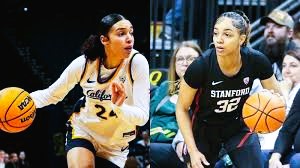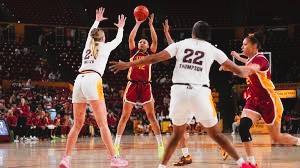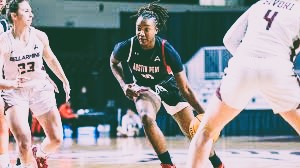Caitlin Clark is the all time leading scorer in NCAA Division basketball. She is the biggest star in women’s college basketball. He is one of the biggest stars in all of sports today. Clark is also a white woman leading a primarily black league.
Earlier this month, former WNBA player Sheryl Supes attempted to undermine Clark’s legacy with a series of false statements. Swoopes said Clark has played for five years, is 25 years old, and is shooting 40 times per game.
When Outkick and others questioned whether racial animosity contributed to Supes’ ignorance, he cited a derivation of critical race theory—saying “black people can’t be racist.” CRT insists that white people can and do be racist. Meaning, it’s appropriate to label an article from Thursday’s USA Today, in which a white woman wrote, just that: racist. The future of women’s basketball needs to be black-faced, argued Lindsay Schnell.
The article claims that Clark’s whiteness elevated her to superstar status and that the NCAA “must” ensure that a black woman takes her place when she graduates later this year. USA Today isn’t asking. USA TODAY claims. Schnell says black women created the game, so it’s theirs. Here are some blurbs from the piece:

Often, the black players who made women’s hoops
— and who now dominate the professional level, where the WNBA is 70 percent black
— were not acknowledged. Sometimes, their existence has been completely erased from the record books, such as former Kansas standout Lynette Woodard’s Division-I scoring record not being recognized by the NCAA.
I don’t think it was anybody’s fault or anybody’s intent, Southern Cal coach Lindsey Gottlieb told USA TODAY Sports. But black female superstars have not received enough commercial approval in our society.
If only a commercial included Simone Biles, Serena Williams, or Venus Williams. As women’s basketball grew in popularity, white players received the most attention. Well, that’s not right. Angel Reese is the second most hyped star in women’s college basketball.
In fact, the media, behind their own on-court rivalry, tried to debate whether Reese was better than Clark last season during the tournament. If it wasn’t for the truth.

At this point, you’re probably wondering what evidence USA Today has provided to support the premise that Kaitlyn Clark’s skin color contributes to her attention. Unfortunately, the author does not cite any evidence anywhere in the article.
Of course, he didn’t. There is no proof. Caitlin Clark isn’t a star because she’s white. He’s a star because he’s breaking records – including Pete Maravich’s. She is an event. She is generational.
The article later laments that “Clark and Iowa regularly play on Fox.”
Correct Fox Sports programs around Clark. ESPN also programs around LeBron James. NBC programs around cowboys. This is called television business.

Clark is setting television records for women’s basketball. On Sunday, Iowa’s record-setting game against Ohio State drew more than 4 million television viewers at its peak, marking the most-watched women’s regular-season basketball game since 1999.
Clarke’s popularity is also organic. The media and the NCAA did not create his stardom. He played his game. And this is what underscores the brazenness of Supes and Schnell’s animus toward Clark.
The superstar status of Woods, McGregor and Gretzky elevated their respective, rather niche, sports. Clarke is doing the same in women’s hoops.
Swoopes and Schnell seem unaware of who benefits from Clark’s popularity. The players around him do. By playing women. Black women, who USA Today notes are the majority population in college and professional basketball, do.
A monocultural athlete improves the sport they play and everyone around them. Clark introduced women’s basketball to casual sports fans who didn’t care much about the game, including prominent media personalities like Bill Simmons.
I’m the same person that once upon a time, I didn’t want to watch women’s college basketball. I did not like the product. He called Clark the funniest player in college. His interest in her prompt him to take an interest in other players on the court.
There is continuity. Gameplay is good. It has a lot of basic stuff that it used to combine with slashes and kicks and threes. Simmons is not alone. Women’s college basketball now routinely tops the NBA, thanks in large part to Clark.
Caitlin Clark will leave women’s basketball, traditionally a low priority nationally, far more popular than when she entered it.
And there is the WNBA. Undoubtedly, the WNBA — a 70 percent black league — will be more popular the season after Clark’s arrival.
But, for all I know, she is a white woman. It’s hard for Sheryl Swopes and USA today to look past her skin color and realize that Clark is revolutionizing the sport they claim to support.